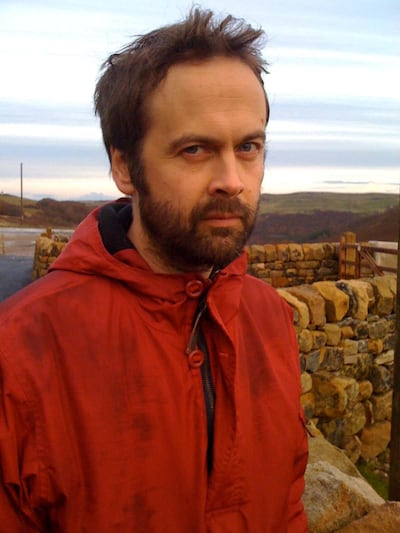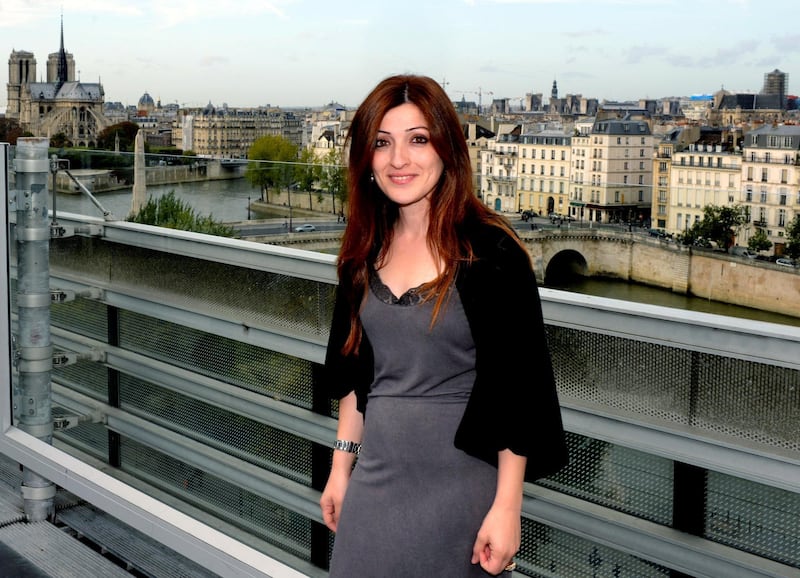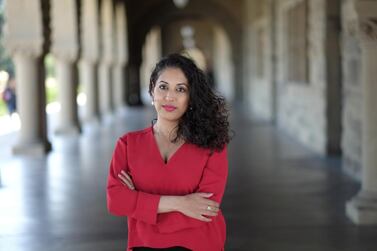Literature usually tries to connect readers to a sense of place by clustering around sites that are familiar to them – centres of culture, tourism, landmarks, famed topographies, says Ra Page, founder of Comma Press.
But what do writers do, Page asks, when the spaces known to the author, such as Gaza, Ramallah, Nablus and Hebron, are off limits to the rest of the world? Many of them are, indeed, he says, even out of bounds for Palestinians themselves.
It is a question he will address further at Liverpool Arab Arts Festival next week, where he will chair a discussion with three Middle Eastern writers to explore the challenges of "Writing the Palestinian City".
The conversation between Maya Abu Al Hayat, Talal Abu Shawish and Mazen Maarouf will consider how authors tie readers to a physical place, such as Palestine, which has a global identity that changes depending on whether the audience is "inside" or "outside".
“I’m really interested in what happens to writing about ‘place’ when these kinds of travel restrictions are imposed,” Page says.
“Do writers have to narrow their intended readership, and just try to address those in their immediate locality, or do they keep trying to write for the whole world, as writers in the West have the luxury of doing so?” he says, pointing out that much that is written or televised in America seems to be set in New York.
Comma Press, the not-for-profit publisher, has recently released The Book of Gaza, an anthology of 10 stories by 10 writers from the city, and a second instalment of the series, The Book of Ramallah, will be released next year. Its editor is Al Hayat, the Beirut-born Palestinian poet and novelist who will take the stage with Page at the festival on Monday, July 13.

Al Hayat has lived in Jerusalem for 11 years, but she often regards Ramallah, where she works, as her true home. "The city of Jerusalem is very complicated," she tells The National. "It's religious everywhere. Everyone wants to say that 'this is our city' and there's tension in the air. You can see this also in Haifa."
Although Ramallah is only 40 minutes by car from the disputed holy city, it can sometimes take Al Hayat four hours to get there, due to strict Israeli checkpoints.
“Jerusalem is very modern and you can find everything there, but at the same time, it's not your place,” she says. “You feel afraid if you're Palestinian. You'll always feel like a foreigner.”
Tensions in Jerusalem between the Israelis and the Palestinians are often high and violence is common. Only last month, Iyad Elkhalak, a Palestinian man with autism, was shot dead by Israeli police after they incorrectly suspected that he was armed.
Discussing The Book of Ramallah, Al Hayat says that the themes within the anthology of stories range from isolation to the city's past and present. In the years after the Oslo Accords of 1993 and 1995, the city in the central West Bank changed: it transformed from a small town to a commercial hub teeming with life.
“Ramallah is often seen as a place to reach because most of the time you are from outside Ramallah, but Ramallah is the place where you work, where you have a dance,” Al Hayat says.
“At the same time, it's under occupation – that’s another perspective to see Ramallah in,” she says. You can't reach Ramallah sometimes, and sometimes they look at it as a burden, like it's a fake city; it's not real. When you're in Ramallah, you think that this isn't really a Palestinian city, but at the same time, it is a Palestinian city where anything can happen.”
One of the tales in the anthology is based on a true story. Written by the renowned Palestinian poet Ibrahim Nasrallah, it is about a Palestinian boy coming from the city of Nablus to Ramallah by bus. Israeli security forces say they can only let him through if he kisses an Israeli girl with them whom he doesn’t know. At first, he refuses, but the soldiers say: “If you don’t kiss her, then you can’t go.” In the end, she asks him to kiss her so they might reach Ramallah.
"It's very complicated here in Palestine to be kissed by an Israeli woman or man," Al Hayat says, with a laugh.
Every July, the Liverpool festival celebrates Arab culture in venues across the city in the north-west of England, through a packed programme of visual art, music, dance, film, theatre, literature and special events.
Liverpool Arab Arts Festival launched their music programme earlier this week, in partnership with MARSM.
— MARSM UK (@MarsmUk) June 26, 2020
If you are able to, please donate to @arabicartsfest so artists can be rightfully paid for their work.
To donate and spread the word 👉https://t.co/VCQzOPgyXT https://t.co/3AtM01pZTd
It is the UK's longest-running Arab arts and culture festival, and this year will take place digitally from Thursday to Saturday, July 9 to 18. Every event is free, but the festival is asking for donations.
Among other highlights, artist-in-residence, poet and activist Lisa Luxx will be involved in a series of events, including one with cultural and social activist, playwright and performance poet Dayna Ash.
The renowned Arabist Tim Mackintosh-Smith will read from and discuss his acclaimed book Arabs: A 3,000 Year History of Peoples, Tribes and Empires, and Arab Cinema will be celebrated, including a programme dedicated to female directors.







